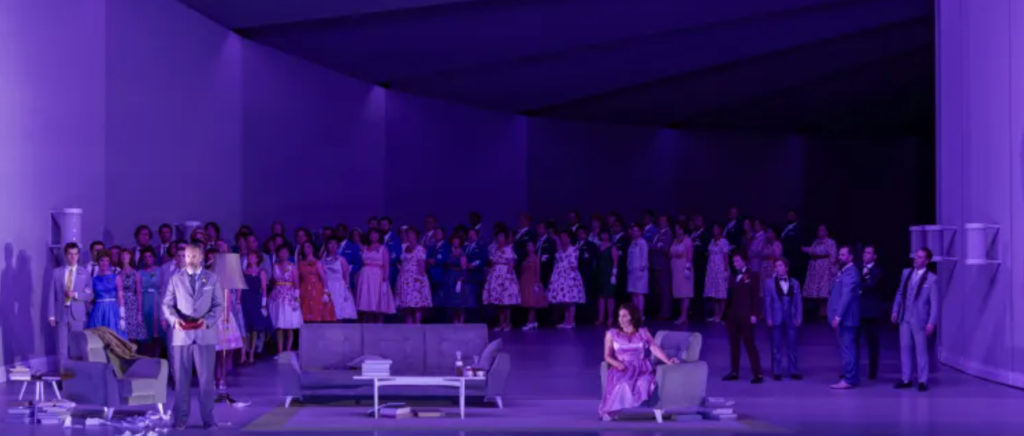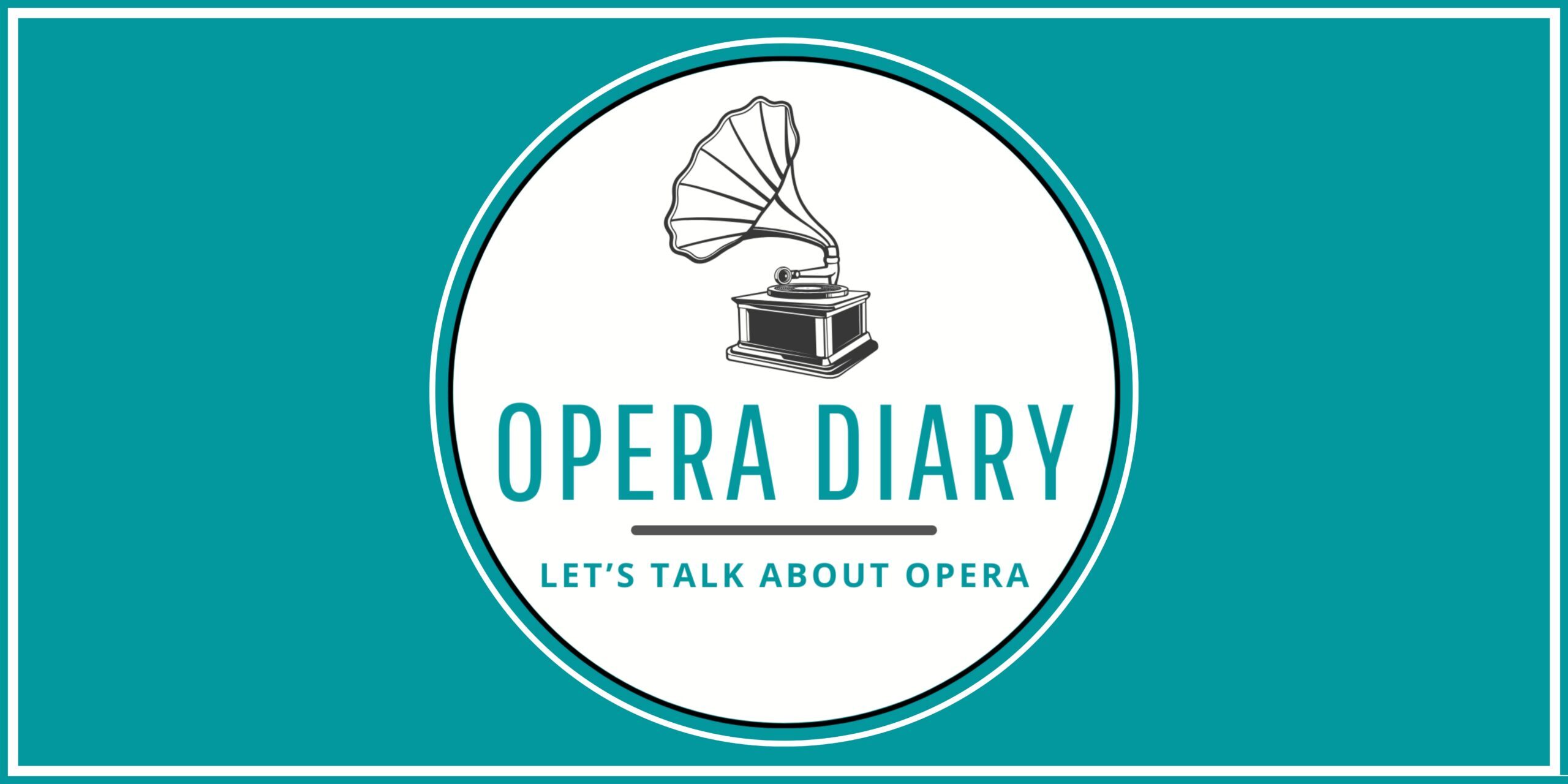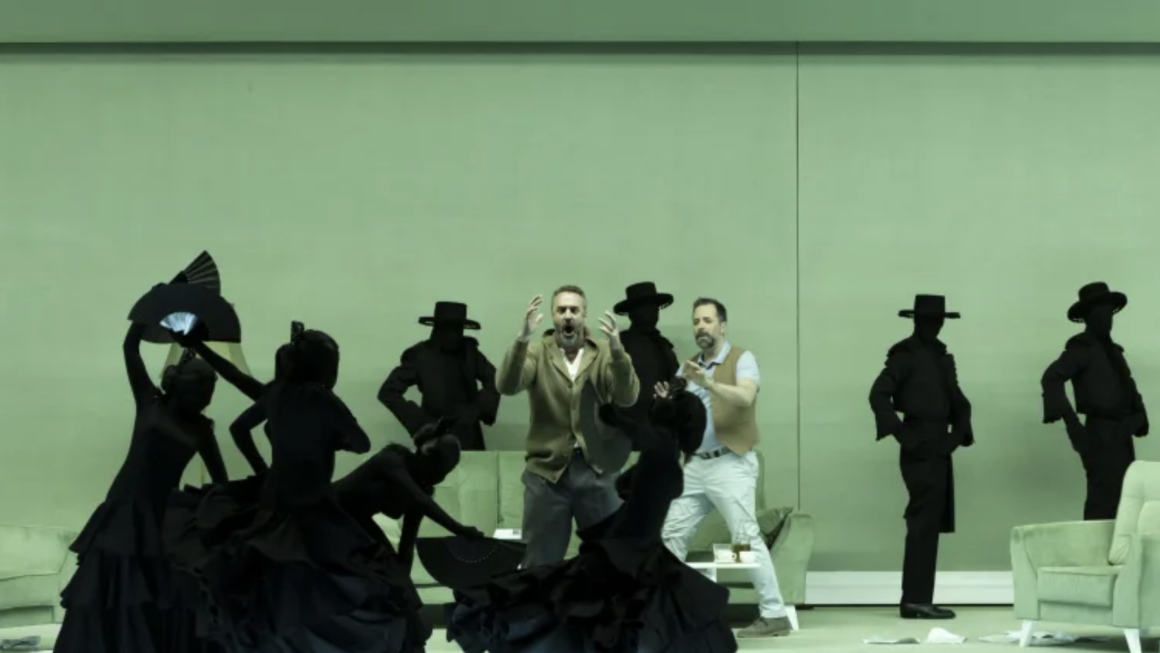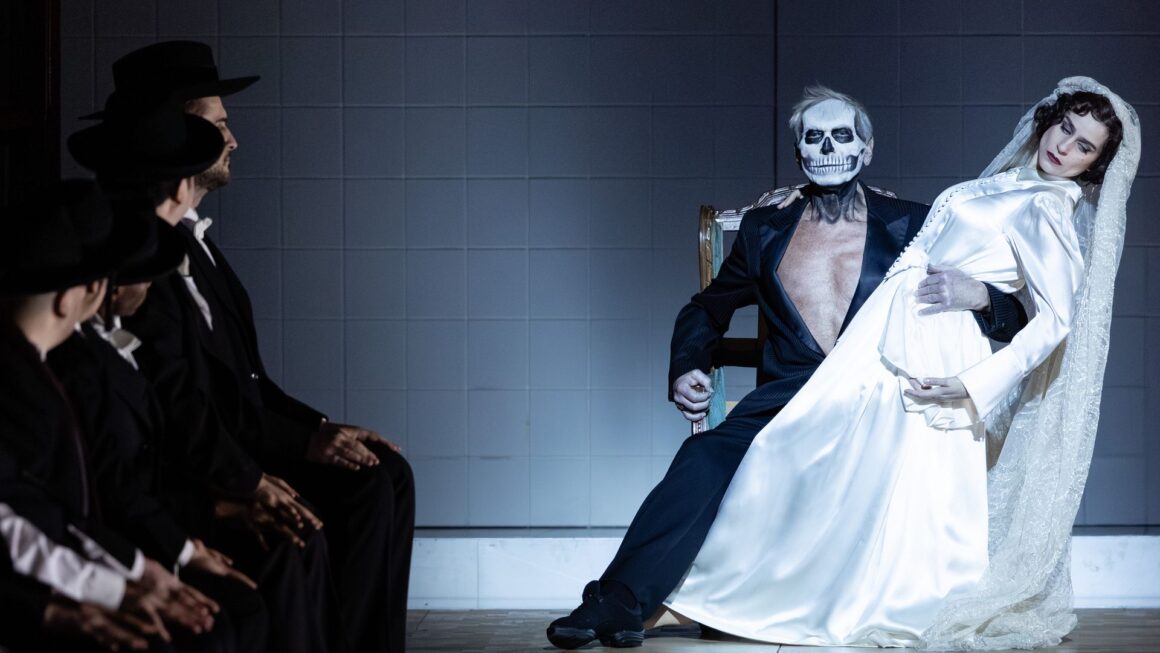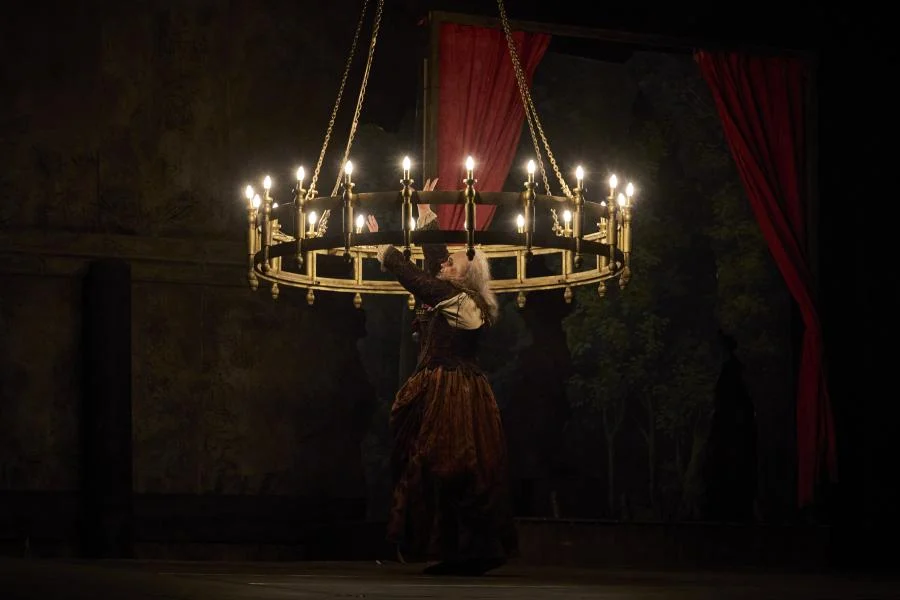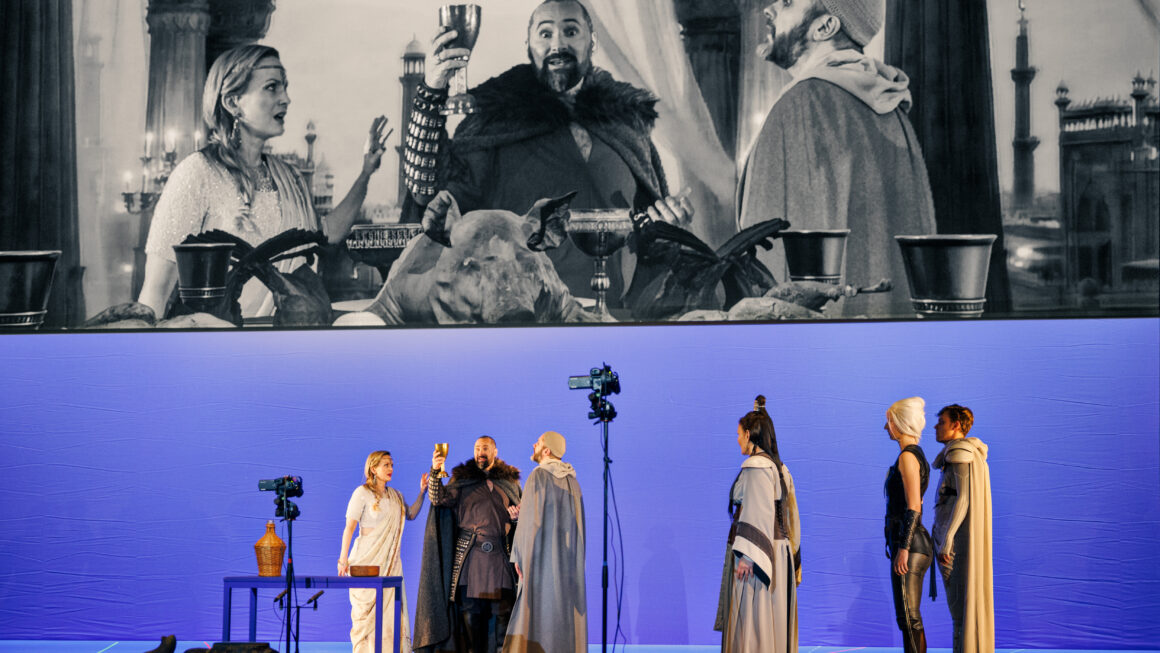Attending Don Quichotte at the Paris Opera was a paradoxical experience. Paradoxical because it is not the most well-known piece in the repertoire – especially for us Italian opera enthusiasts – the new production of Massenet’s Don Quichotte by Michieletto was not the first name we had highlighted at the beginning of the season. However, keen to make the most of the extensive programming offered by the Paris Opera and intrigued by the quality of the cast, we attended with few initial expectations. Suffice it to say, our intuition turned out to be one of the most remarkable experiences of the year.
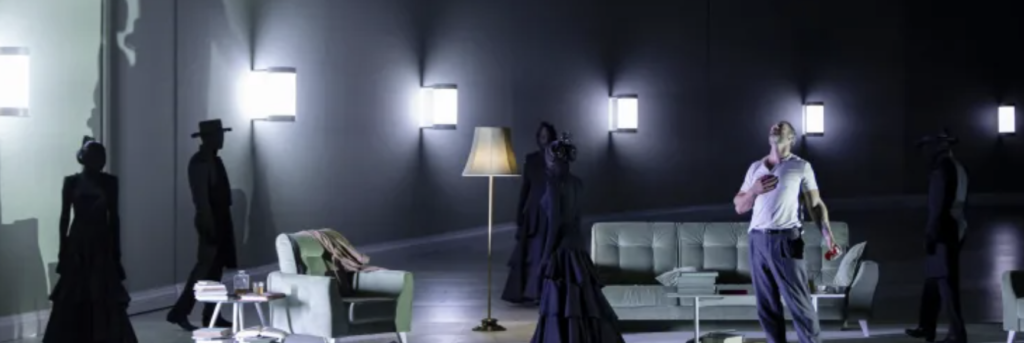
Regarding the quality of the cast, we were introduced to the now-familiar face and soon-to-be Francophone, Christian van Horn, who embodied the endearing anti-hero trapped in his hallucinations and memories, which slowly overcame him throughout the evening. One cannot help but be struck by the seamless fusion on stage between the singer, the actor, and the character. Everything flows: movements, gestures, diction, intonation, and the famous fourth wall collapses within the first few minutes, aided by Massenet’s decidedly underestimated score and by a staging that is both simple and immersive. Whether you are charmed or not by his beautiful baritone/bass timbre, round and almost brassy, whether you are moved or not by this French music tinged with Spanish sonorities, you witness an artist stripping himself bare on stage, putting every ounce of energy into the work entrusted to him. Isn’t that what matters most in a live experience?
But it takes two to tango, and Étienne Dupuis, the servant of the Knight of the Sorrowful Countenance turned master of the house for the occasion, perfectly supports his Maître, giving this duo the depth it deserves, far surpassing the classic master/servant relationship. His emotional involvement crescendos throughout the opera, culminating in a poignant despair as he helplessly witnesses the decline of “son grand”. His familiar timbre perfectly fits the character, and once again, we are struck by his natural performance, which seamlessly fuels the symbiosis he maintains with the main character.

Gaëlle Arquez portrays a voluptuous Dulcinée, the hero’s open wound of unrequited love, delivering her part with the precision needed to match the level of the leading duo. The evolution of her character – from initially desired to ultimately condemning the hero (the duet “tu m’as brisé le coeur” is particularly moving in this regard) – is strikingly natural and simple. As for the rest, we are pleased to see familiar faces among the regulars and troupe members: Samy Camps, Nicholas Jones, Marine Chagnon, and Emy Gazeilles, and we are once again charmed by the quality of the chorus.
Immersed in the intimate universe and the thoughtfully adapted libretto by Michieletto, moved by the simple and touching text, and struck by the emotions underlying the faces of the three main characters during the final bows, we leave this experience, as much theatrical as it was vocal, feeling pensive and grateful for such a high-quality production.
